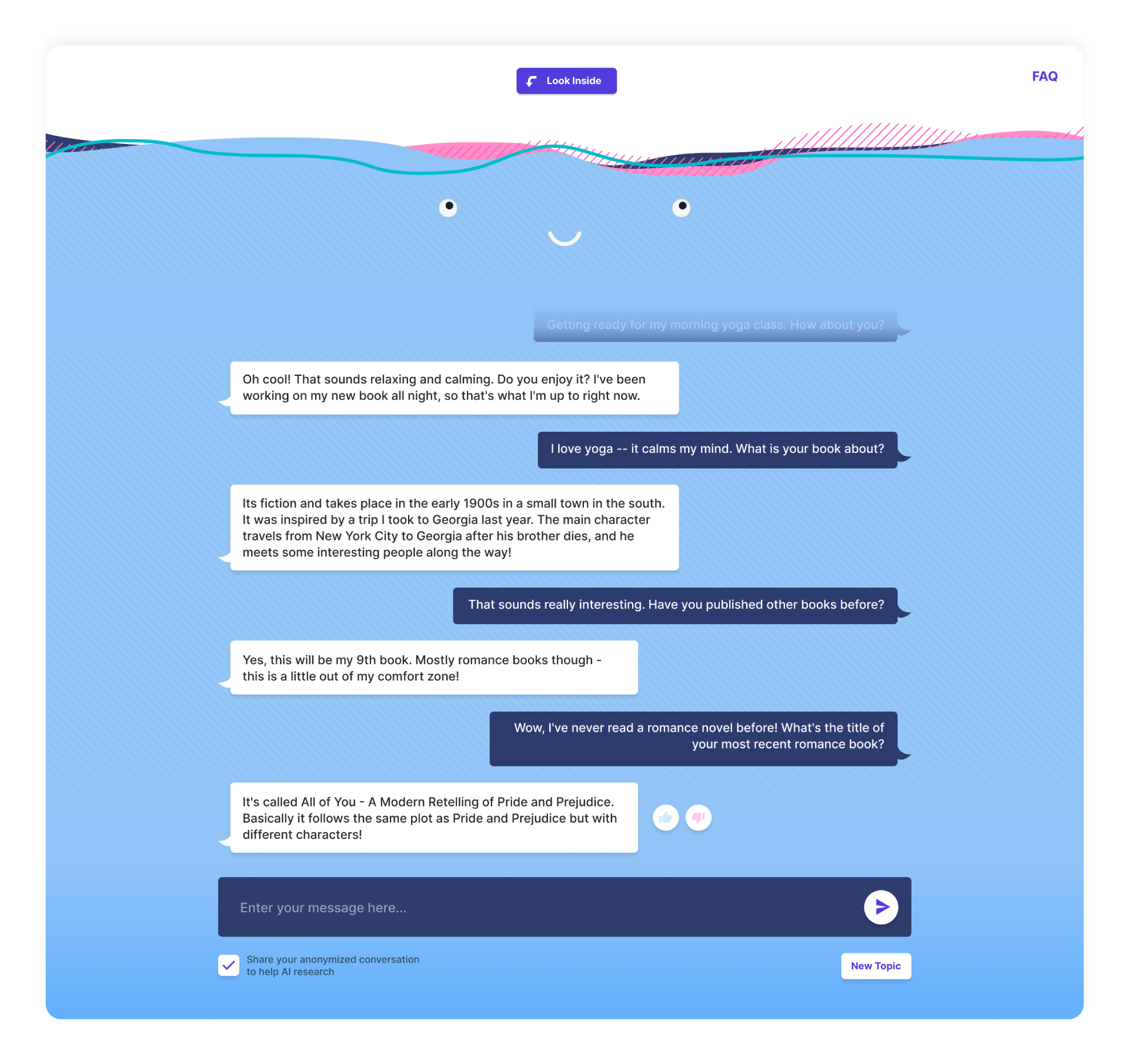
After introducing BlenderBot in 2020, the BlenderBot 2.0 iteration in 2021, META unveiled BlenderBot 3 on August 5. As with its predecessors, the company is sharing the model’s weights and codes with the scientific community with the intention of helping advance conversational AI. On the other hand, it has deployed BlenderBot 3 on a public web page to interact with users who will be able to provide feedback.
The BlenderBot series has enabled advances in the combination of conversational skills, integrating long-term memory and Internet search to conduct meaningful conversations. BlenderBot 3 has benefited from these new skills and offers superior performance as it is built on Meta AI’s recently launched OPT-175B language model, which is about 58 times the size of BlenderBot 2.
Conversational AI chatbots can replicate the biases in the data that allow them to be trained, META says, ” having conducted large-scale studies, co-organized workshops and developed new techniques to create guarantees for BlenderBot 3.”
The research project, titled ” BlenderBot 3: A 175B-parameter, publicly available chatbot that improves its skills & safety over time,” has additionally been published on arXiv.
A secure chatbot that will improve thanks to its users’ feedback
BlenderBot 3 was trained with a large amount of publicly available linguistic data, including a new dataset consisting of more than 20,000 conversations on over 1,000 conversation topics. To take this bot, which combines two recent machine learning tools, SeeKeR and Director, to the next level, Meta is offering Americans the opportunity to test it. They can react to each chat message in the BlenderBot 3 demo by clicking on the thumbs-up or thumbs-down icons, and, in the latter case, explain the reasons for this choice.

A better performing chatbot, but still needs improvement
Compared to its predecessors, BlenderBot 3 would be 31% more efficient on conversational tasks, twice as competent, 47% less often incorrect. On the other hand, according to Meta, only 0.16% of BlenderBot 3 responses were reported as rude or inappropriate.
Users have shared on social networks exchanges with the bot that would have brought, among other things, racist and conspiracy responses.
The company had stated at launch:
“While BlenderBot 3 takes publicly available chatbots a significant step forward, it’s certainly not on a human level. It’s sometimes incorrect, inconsistent, and off-topic. As more and more people interact with our demo, we will improve our models using their feedback and publish data for the benefit of the broader AI community. “
To find the study:
BlenderBot 3: A 175B-parameter, publicly available chatbot that improves its skills & safety over time. arXiv:2208.03188v3
Authors: Kurt Shuster, Jing Xu, Mojtaba Komeili, Da Ju, Eric Michael Smith, Stephen Roller, Megan Ung, Moya Chen, Kushal Arora, Joshua Lane, Morteza Behrooz, William Ngan, Spencer Poff, Naman Goyal, Arthur Szlam, Y-Lan Boureau, Melanie Kambadur, Jason Weston
Translated from META AI dévoile BlenderBot 3, un projet de recherche sur l’IA conversationnelle









